Hamas Attack On Israel Sparks Criticism Of US Deal With Iran
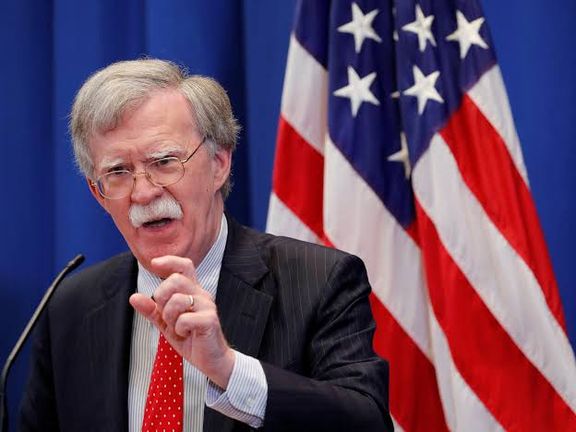
The recent Hamas terror attack on Israel has ignited a wave of criticism directed at the Biden Administration.

The recent Hamas terror attack on Israel has ignited a wave of criticism directed at the Biden Administration.
Some prominent US political figures expressed concerns over the administration's Iran deal and the release of funds that Iran is allegedly funneling to its proxies.
Former National Security Advisor of the United States, John Bolton, raised a pivotal question regarding the brutal Hamas attack on Israel asking whether Hamas acted independently or under orders from the Iranian government, which provides financial support, arms, and training to Hamas fighters. Bolton stated, "The evidence is becoming clearer hour by hour that the real aggressor here is Iran."
Morgan Ortagus, former Spokesperson for the United States Department of State, also condemned Iranian-backed terrorists for their reprehensible actions during the attack. She referred to disturbing videos circulating on social media that depicted Hamas militants brutally dragging the lifeless bodies of Israeli women through the streets after assaulting and killing them. Ortagus asserted, "Biden has got to stop sending billions of dollars to Iran. Just stop it."
Former CIA officer Norman Roule echoed similar sentiments, emphasizing the grave consequences of sanctions relief for Iran. He pointed out that while Iran has supported Hamas with hundreds of millions of dollars even under stringent sanctions, the recent relaxation of sanctions has significantly escalated Iran's support, resulting in deadly consequences for civilians.
Roule stated, "The next time someone argues that sanctions have no impact or presses for sanctions relief, remind them of this moment. Decisions have consequences."
The attack has resulted in a significant loss of life in Israel, with at least 250 people killed and 1,500 wounded, making it the deadliest assault on Israel in decades, people taken hostage in their homes, killed in the streets and in their cars, and whole villages under siege by Hamas militants who infiltrated by land, sea and air.
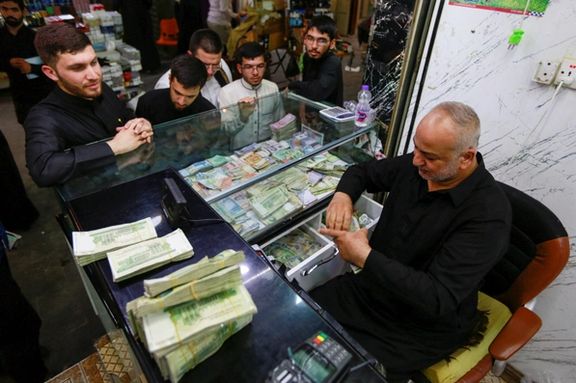
The Iranian currency has fallen noticeably in the past two days as the Palestinian Hamas unleashed a devastating attack on Israel early on Saturday.
The rial began to slightly fall late on Friday, before the attack, while the fall accelerated on Saturday. While for weeks the rial was hovering around 495,000 per US dollar, it broke through the 500,000 on Saturday and dropped to 515,000 on Sunday.
Iran is widely seen as supporting the militant Palestinian groups and specifically the attack launched on Saturday morning. Top Iranian officials and government media did not hide their glee at the initial success of the Hamas attack and expressed their outright support.
Israel has vowed punishing revenge against Hamas, but the prospect of escalation beyond the Palestinian territories, and possible military conflict with Iran is apparently increasing the demand for the US dollar and other major currencies in Tehran.
The rial has lost its value 12-fold since early 2018, when the United States withdrew from the JCPOA nuclear deal and imposed tough economic sanctions on Iran. This has made imports much more expensive and has led to very high inflation at around 50 percent for the past three years.
Some officials and media in Tehran have been warning that tens of millions of people have fallen into poverty because of persistent high inflation, and this in turn has seriously contributed to political instability. Widespread anti-regime protests in 2022 and 2023 are partly attributed to financial hardships ordinary citizens face.
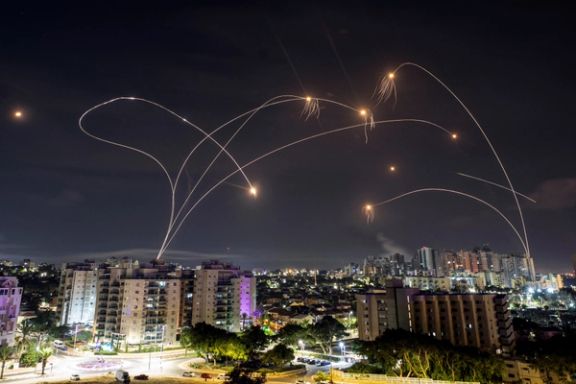
Hamas’ unprecedented and deadly attack on Israel has once more put the Iranian regime and the Biden administration's Iran policy at the center of attention.
“What's going with Israel right now…,” said former President Donald Trump “I wasn't shocked because two weeks ago we gave them 6 billion dollars.”
He was referring to the $6 billion in Iran’s frozen oil revenues that the Biden administration agreed to release from South Korea as part of a ‘prisoner swap’ deal with the Islamic Republic.
The same line has come from many in Washington who see Biden’s lenient approach to Iran as flawed and counterproductive.
“Since Biden took office Iran’s accessible foreign exchange reserves went from <$6B (same as Haiti!) to $70B,” posted David Greenaway, Director of Centre for National Defense, “anyone arguing this doesn’t support terrorism is either wholly ignorant, lying, or both.”
The Biden administration sensing that the criticism can badly hurt its image, responded immediately, arguing that the money made available to Iran in return for the release of five prisoners “has nothing to do with the horrific attack on Israel.”
“Not a penny has been spent, and when it is, it can only go for humanitarian needs like food and medicine,” said the State Department’s spokesperson, Matthew Miller. A senior Treasury official reiterated that the funds cannot be directed to Iran. “Any suggestion to the contrary is false and misleading,” Brian Nelson said.
However, critics responded that this argument is flawed because money is fungible. When Iran can buy essential food with the funds released, it would be able to use its own money for military and malign activities.
AFP news agency quoted a senior White House official as saying that it was “too early to say” whether Iran was “directly involved” in the large-scale terror attack. However, at the same time, Hamas Spokesman Ghazi Hamad confirmed in an interview with BBC what everybody sensed: that Hamas’ large-scale attack on Israel had the “support of the regime in Iran. “
Ali Khamenei for his part all but officially confirmed his regime’s involvement on X (formerly Twitter).
Reposting a viral clip of Israelis running away from Hamas forces, Khamenei wrote “God willing, the cancer of the usurper Zionist regime will be eradicated at the hands of the Palestinian people and the Resistance forces throughout the region.”
The post was tagged by X, pointing out that it had violated the X Rules, but X had determined that “it may be in the public’s interest for the post to remain accessible.”
At the same time, images emerged from Iran that showed ultra-hardline Basijis celebrating Hamas’ attack on Israel, calling it a ‘Palestinian Victory.’
A spokesperson for the Islamic Republic’s Foreign Ministry Spokesman called the attacks ‘‘a new chapter in the continuing resistance and armed operations” against Israel. The surprise attack showed that “the Palestinian resistance is confidently capable of conducting hybrid and multilateral operations against the occupiers,” Kanaani said.
The attacks took place on the 50th anniversary of the Yom Kippur war which began on October 6, 1973, when Egypt and Syria launched a surprise attack on Israel during the Jewish holy day of Yom Kippur. The war led to diplomatic efforts that eventually resulted in the Camp David Accords in 1978 and the Egypt-Israel Peace Treaty in 1979.
Israel had never suffered like this in an armed conflict since that War.
Reports suggest that more than 200 Israelis have been killed in the attack and dozens might have been taken hostage.
The attack –and the Israeli retaliation, which may involve large-scale ground assault– would likely affect the negotiations between Israel and Saudi Arabia and the chances of a deal to normalize Israel-Saudi ties.
There were reports that Saudi Arabia had asked for a ‘gesture’ towards the Palestinians as a condition of the deal. Any such concession for the Netanyahu administration, if it were ever considered, is almost impossible now. The deal that many in Washington believed was ‘only a matter of time’ seems quite far away now.
It remains to be seen how this episode would impact the newly-normalized relationship between Iran and Saudi Arabia –and even the 2024 elections in the US, as criticism of the Biden administration for its Iran policy grows.
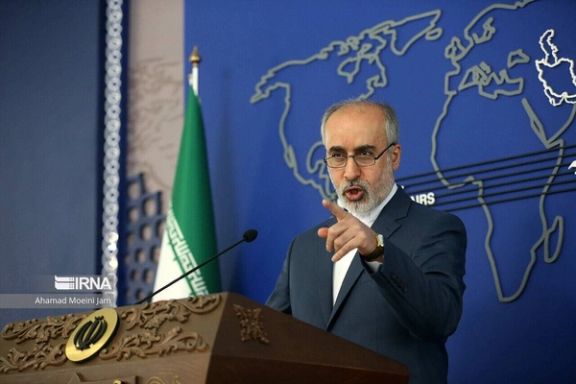
The Iranian regime organized celebrations of what it called “the Palestinian victory” in Hamas’ ‘Al-Aqsa Storm Operation’ in Iranian cities Saturday evening.
Foreign Ministry Spokesman Nasser Kanani described Hamas’ attack as ‘a turning point and a new chapter in the continuing resistance and armed operations” against Israel and said these operations demonstrated that “the Palestinian resistance is confidently capable of conducting hybrid and multilateral operations against the occupiers”.
Videos posted on social media show a crowd of pro-regime men and women on Saturday evening waving flags of the Islamic Republic and Palestine and celebrating with fireworks and music at Palestine Square in central Tehran where the Palestinian “embassy” is located.
In one of the videos posted by the official news agency IRNA on X, the speaker is heard delivering a speech in Arabic and then chanting “Death to America” and “Death to Israel”.
A new mural banner was erected at Tehran’s Palestine Square today that mentions the Al-Aqsa Storm Operations. Similar banners have been put up on the streets in other locations. Some Iranians mentioned on social media that this act betrays the regime’s foreknowledge of the terror attack against Israel.
Several other officials including Major General Yahya Rahim Safavi, a former IRGC commander who has served as one of Supreme Leader Ali Khamenei’s top military advisors, and Khamenei’s former foreign policy advisor Ali-Akbar Velayati have also hailed Hamas’ unprecedented surprise attack, the most serious in a generation.
Safavi said Iran will stand by the Palestinian fighters until the liberation of Palestine and Quds and urged the Organization of Islamic Cooperation (OIC) to take practical measures against Israel for crimes against Palestinian children.
The Hamas attacks and Israel’s retaliatory airstrikes have so far left at least 150 Israeli’s and nearly 200 people in the Gaza strip dead. Hamas has also taken dozens of Israeli soldiers and civilians hostage during its widespread operation against Israel. Israel has now cut off electricity supply to Gaza.
Iranian lawmakers chanted “Death to Israel” and "Palestine Will Be Victorious, Israel Will Be Destroyed" during a session at the parliament today to demonstrate their support for the Hamas operations.
In a speech Tuesday, Khamenei slammed countries seeking to normalize relations with Israel. "The position of the Islamic Republic is that countries that make the gamble of normalization with Israel will lose. They are betting on a losing horse,” he said apparently referring to Saudi Arabia’s plans to normalize its relations with Tel Aviv with the help of the United States.
Iran hosted an Islamic Unity Conference last week in which Hamas representatives also took part.
Hundreds of Iranians opposing the regime expressed outrage at the attack, which was mostly targeting civilians and reminded the world to adopt a tough stance against the Islamic Republic.
Speaking to Iran International TV, California-based political analyst Reza Goharzad said such an attack should have been expected given the recent statements by Iranian officials and the possibility of the Islamic Republic urging its allies to initiate such an attack on Israel.
Hossein Aryan, a military analyst in London, however, argued on Iran International TV that Israel will obviously retaliate and defeat Hamas with many casualties as it has always done but Hamas is seeking a “psychological victory” despite the cost.
Reza Talebi, journalist in Berlin, also told Iran International TV that Saturday’s Hamas attack may negatively affect Saudi Arabia’s plans to normalize relations with Israel to which the Islamic Republic has expressed strong opposition.

World leaders and prominent political have figures extended their congratulations to Narges Mohammadi, the imprisoned Iranian activist, for her Nobel Peace Prize win.
Former US President Barack Obama also conveyed his congratulations, highlighting Mohammadi's decades-long advocacy for the rights of women and girls in Iran. Obama's message on X read, "For decades, Narges Mohammadi has been a vocal advocate for women and girls in Iran.
This Nobel Prize is a well-deserved recognition of her courage, and the hope that she represents—not only for the women in Iran, but for women fighting repression and violence around the world."
French President Emmanuel Macron expressed his admiration in a message, stating, “Her fight against the oppression of women in Iran and for human rights is essential and universal.”
The European Union released a statement in which they celebrated the Nobel Peace Prize awarded to Mohammadi, underscoring her unwavering dedication to upholding human dignity and the rights of Iranians, even from behind bars.
Penny Wong, Australia's Foreign Minister, applauded Narges Mohammadi's achievement and called for her immediate release, stating, "You have shown incredible courage in your fight against the oppression of women and girls in Iran."
In a separate development, over 320 Iranian political and cultural figures offered their congratulations to Mohammadi. They emphasized that opportunities like this, within the ongoing Women, Life, Freedom movement, will further reinforce the message of non-violence for women in society and all Iranians protesting against authoritarianism.
Political prisoners in the women's ward of Evin Prison also penned a letter, characterizing the the 2023 Nobel Peace Prize for Mohammadi as "a testament to her years of tireless work in advancing freedom and equality."
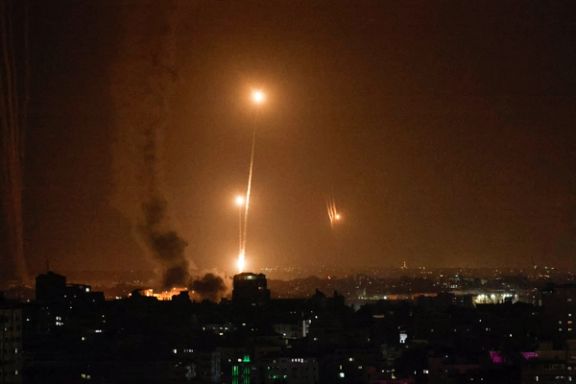
Iran's clerical regime is openly supporting the horror which has seen over 1,000 Israelis wounded and up to 150 dead in less than one day in a huge terror attack.
In a press briefing on Saturday evening, Israeli Defense Forces spokesman Richard Hecht was clear that the blame for the bloody and barbaric barrage in which even women and children have been taken hostage, lies with the Iranian regime, which has long been a supporter of the Gaza-based group.
“Iran has tentacles everywhere” he said when asked if the Iranian regime was considered the root cause of the attacks which over Saturday have so far seen an estimated 150 Israeli deaths, possibly dozens of civilians taken hostage and hundreds more wounded. The IDF refrained from sharing numbers.
Last year in an interview with Al Jazeera, Hamas chief Ismail Haniyeh publicly thanked Tehran for supporting it with $70 million to help it develop missiles and defense systems, saying the regime is the terror group’s biggest donor.
While Hamas - designated as a terrorist group by countries including the UK and US - announced they had launched more than 5,000 rockets, the IDF claim the number is closer to 3,000 but attacks continued into Saturday evening.
From 6am on Saturday, dozens of militants, many armed with RPGs, entered the country by land, sea and air attacking civilians in their homes, and invading military bases near the border.

Horrific images shared by Hamas on Telegram show civilians and soldiers being taken hostage, murdered and dragged through the streets of Gaza to baying crowds.
Members of Iran’s parliament were shown on state television rising from their seats to chant "death to Israel” as bells of celebration rang in Tehran.
Iran's foreign ministry spokesperson Nasser Kanaani was also quoted by ISNA supporting the terror proxy: "In this operation, the element of surprise and other combined methods were used, which show the Palestinian people's confidence in the face of the occupiers.”
Iranian state media reported celebrations in Tehran including fireworks and street parties on Saturday evening. The mural at Tehran’s Palestine Square was also changed in support of the militia’s operation.
Yahya Rahim Safavi, an adviser to Iran's Supreme Leader Ali Khamenei voiced unequivocal support for the terror proxy on Saturday, saying ”We will stand by the Palestinian fighters until the liberation of Palestine and Jerusalem.”
The IDF claims it is “ready for a long long event” after Hamas declared war in an attack on civilians like nothing witnessed in the country’s history. An aggressive deployment of troops has followed, and the response is as yet being discussed, though the IDF says it will be “severe” given the terrorist nature of the attack which has even seen children and elderly taken hostage both in their homes in Israel and smuggled across the border bank to Gaza.
Coinciding with the 50-year anniversary of the Yom Kippur war, in which Israel was invaded in a multi-front attack in the worst war in its history, Hecht said while the unraveling events should not be compared to the war which saw Israel attacked from multiple Arab nations, Saturday’s is “a bad bad event”.
Fears are that the offensive will become a multi-front attack as was seen earlier this year with rockets launched from Iran’s proxies in Lebanon, Syria and Gaza. Just last month, the leaders of Iran’s Palestinian proxies, Hamas, Palestinian Islamic Jihad and and the Popular Front for the Liberation of Palestine, met with the Supreme Leader in Tehran, showing an increasing unity forming between the groups as the regime rallies them to action against its archenemy.
Fellow Iran-backed proxy, Hezbollah, issued a statement in support of the invasion, which also included drones, the regime’s speciality weapon, claiming it was in direct contact with Hamas and other proxy groups.
In its statement, Hezbollah claimed the attacks were a "decisive response to Israel's continued occupation and a message to those seeking normalization with Israel", in a barbed attack on Saudi Arabia, whose relations have been ramping up in recent weeks amid talk of a US-brokered deal.
Israel is “prepared for an escalation in the north”, said Hecht, who also admitted that the country is braced for a long battle as Hamas has “a massive amount of missiles”, calling it “early days” with hundreds of militants involved, funded by Tehran.
The US was quick to show its support of Israel. President Joe Biden spoke with Prime Minister Benjamin Netanyahu, telling him he supports the Jewish state’s right to defend itself, while US Defense Secretary Lloyd Austin spoke with Defense Minister Yoav Gallant.
Austin said of the attacks which fell on both the holy Sabbath and the Jewish festival of Simchat Torah: "Over the coming days the Department of Defense will work to ensure that Israel has what it needs to defend itself and protect civilians from indiscriminate violence and terrorism.”
However, the support will be met with questions after a deal to free US-Iranian hostages has just allowed the release of $6bn of frozen Iranian funds, which many argue will be reinvested into the regime’s military operations at home and abroad.
As of Saturday evening, fighting was ongoing in 22 locations, with large swathes of Israel in bomb shelters as the situation unfolds.